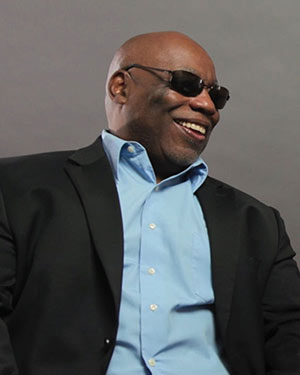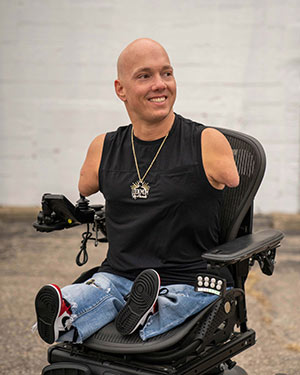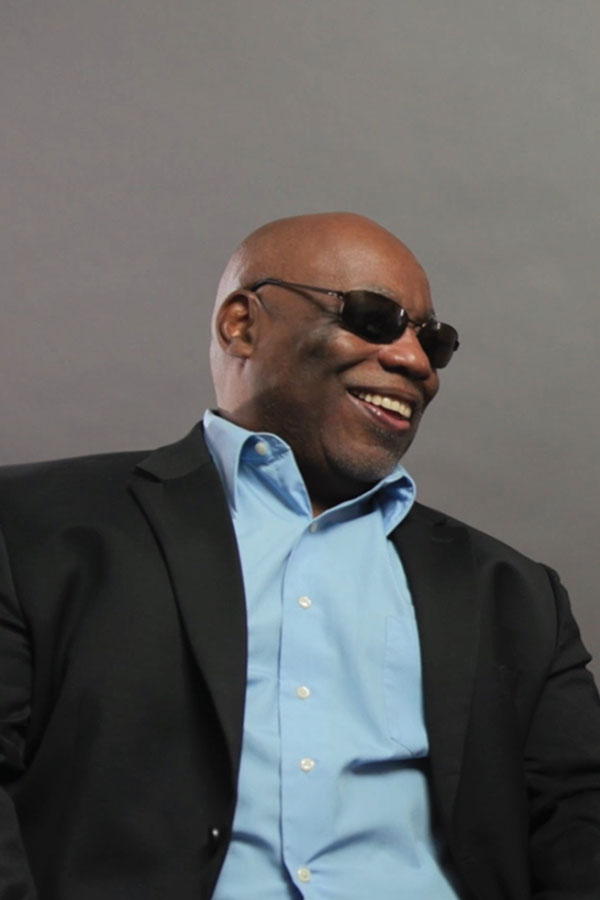Let’s Work
By Mike Moore
Oftentimes I have been asked what I do for a living. I am sure people are asking because I am blind, and they are curious. I answer their question with this, “What type of job do you think I can do?”
I have fun with that conversation, because it seems that some sighted folks think that blind people make great musicians! There could be some truth to that, but why would that come to mind? Well, from my experience as a blind person, I have been in very few conversations about employment where the possibility of being a musician has not been brought up. A possible reason for this could be traced to the media.
Depending how far you go back, television and movies often portrayed blind people as musicians, news stand operators, or sitting in a chair in a high traffic area with a cup in their hand begging for donations. It’s no wonder why some sighted people would, at least initially, think being a musician is a skill a blind person could possess. Before I lost my sight, most of the blind people I had heard of were musicians. I had no other frame of reference outside of the media, because up to that point in my life, I had not met any blind people.
Now, it may be true that some people believe that career opportunities are limited for blind people, fortunately for us, we are as a diverse a community, as it relates to careers, as there is!
Through the evolution of technology, career opportunities for blind people have increased significantly. Increased reliance on technology is not the only reason blind people are thriving, but rather we are getting an opportunity to showcase our skill sets. In addition, attitudes toward people with disabilities are changing. It is evident when you see folks from all walks of disabled life in the workforce.
So, besides music and technology, what else can we do? The myriad of career fields that blind people are involved in may surprise some sighted folks. It may even surprise some blind people. To start, there are blind and visually impaired teachers, professors, primary and secondary education administrators, and just about every other job title on public and private school campuses. I worked in the education field as a teacher, and later an administrator. I lost my sight during my career, as one would imagine, it was quite an adjustment afterwards. However, I was able to get it together and continue to work and thrive!
There are blind and visually impaired architects, lawyers, physicians and nurses. We already know about blind musicians, but it may be surprising to know that there are blind and visually impaired ballet dancers. We are thriving everywhere! We are working in bowling alleys, retail stores, golf courses, animal shelters, fitness centers and even car repair shops.
So, if you are blind or visually impaired and wondering if there are career opportunities for you, you do not need to wonder any longer, because you have the opportunity to involve yourself in most of the career fields that are available to sighted people. In fact, The American Foundation for the Blind have identified more than 250 careers in which blind and visually impaired people are thriving. To get started, you just need to do some career exploration. You need to figure out what career path you want to pursue, and the steps it will take to accomplish that. Fortunately, as readily accessible as information is for us today, a quick internet search can be quite helpful for gathering information on career paths for blind and visually impaired people. Finally, if you are a sighted person who was curious about career choices for blind or visually impaired people, hopefully you gained some insight as to what we are capable of, and currently doing.




